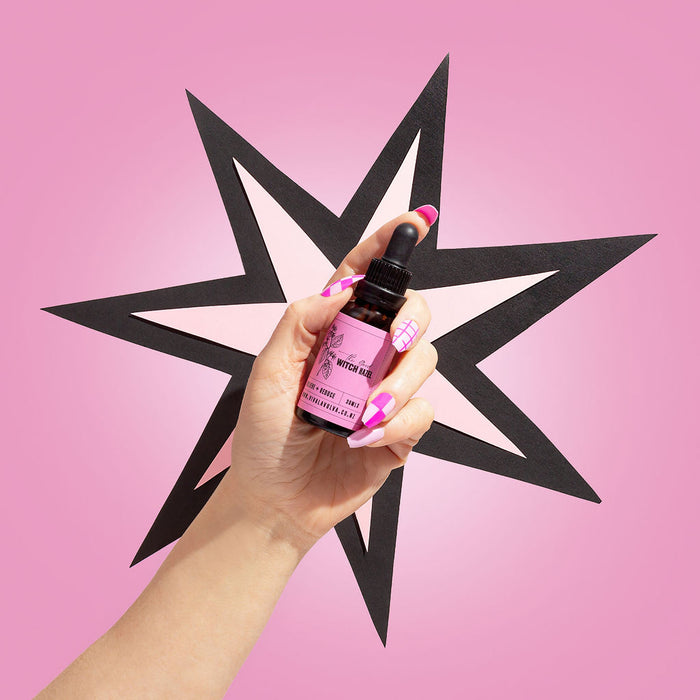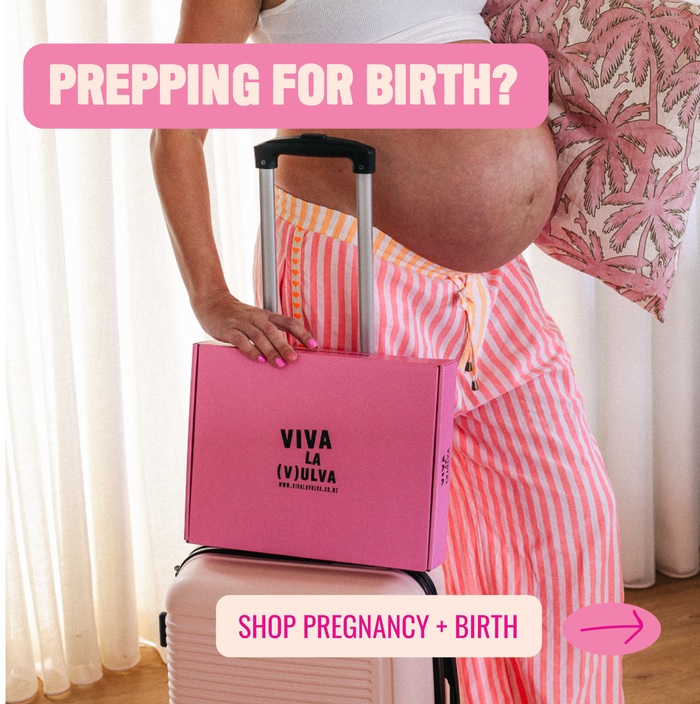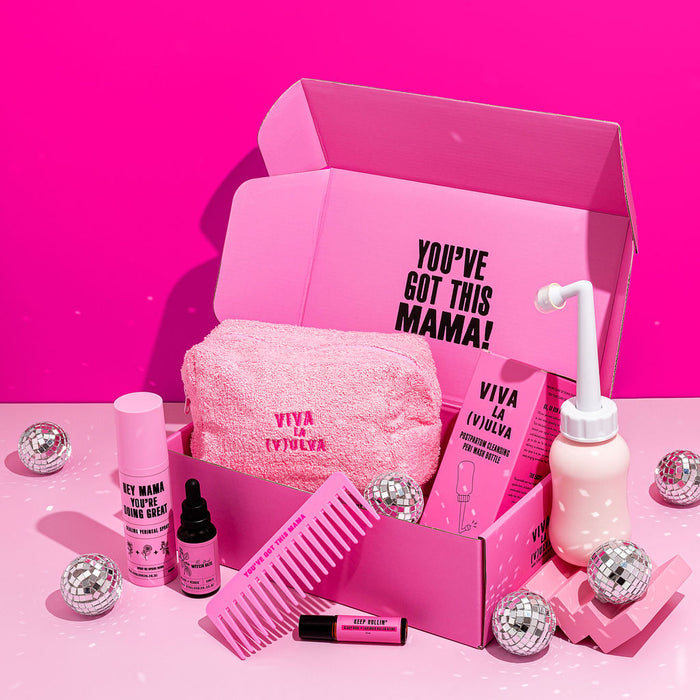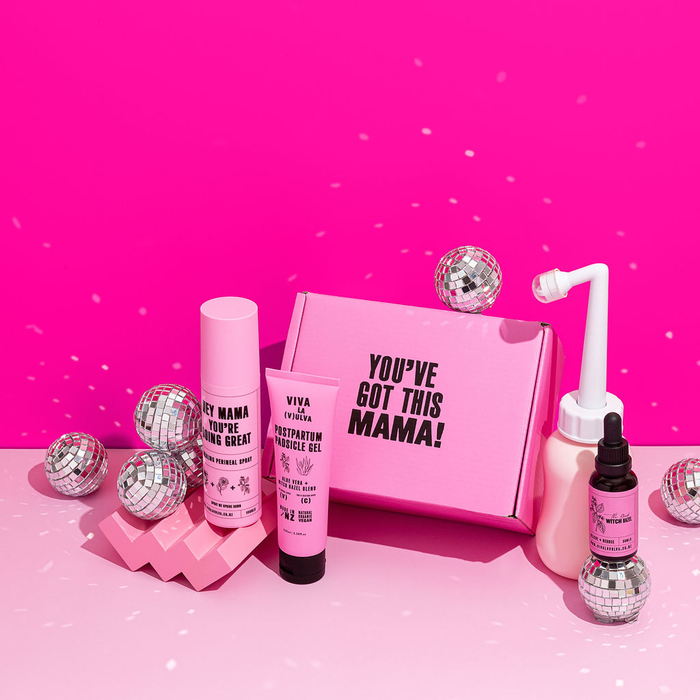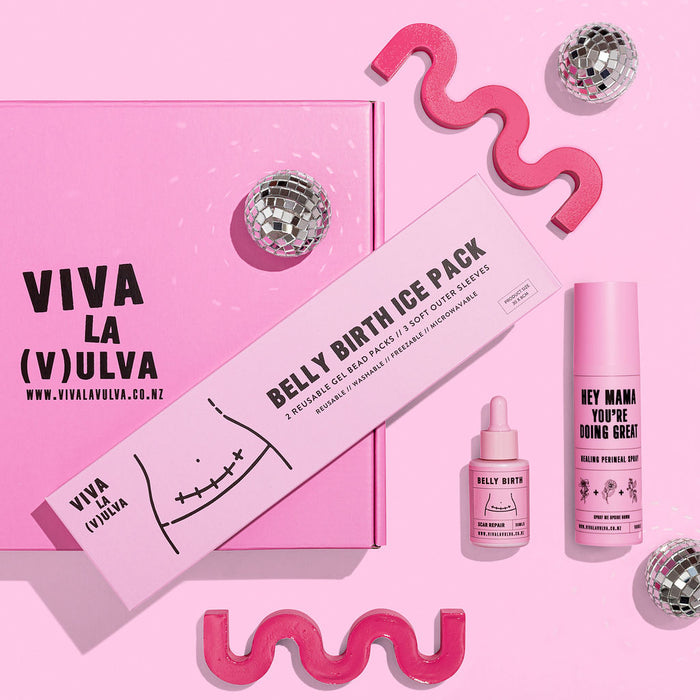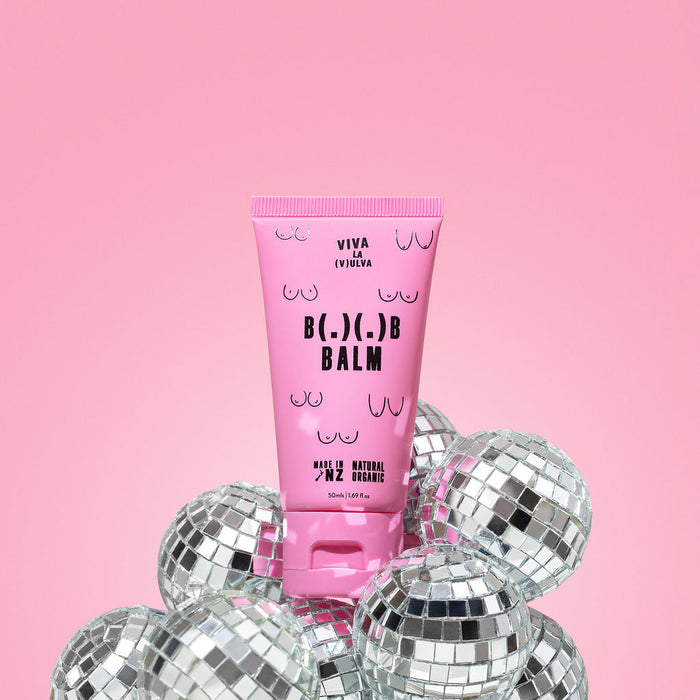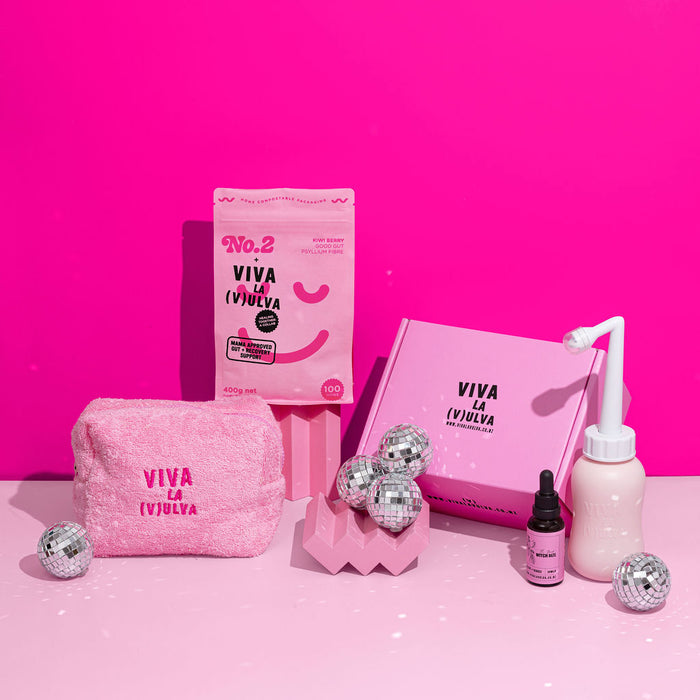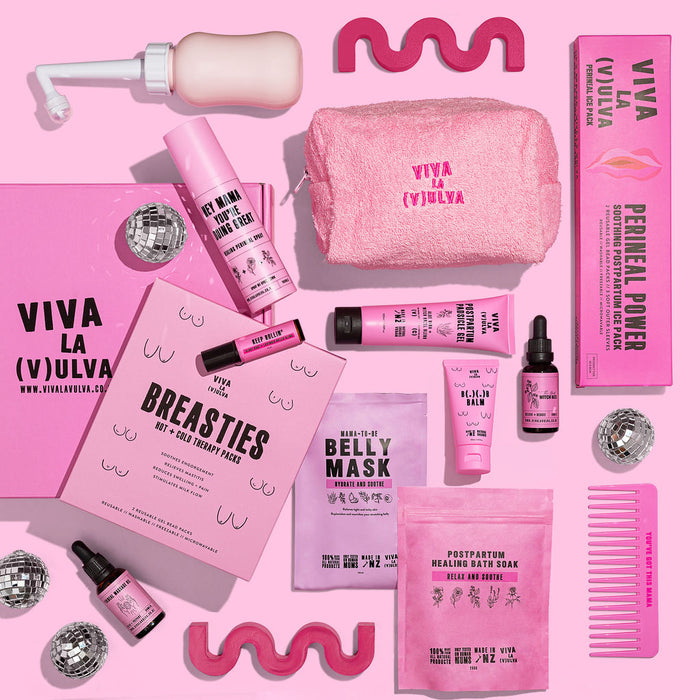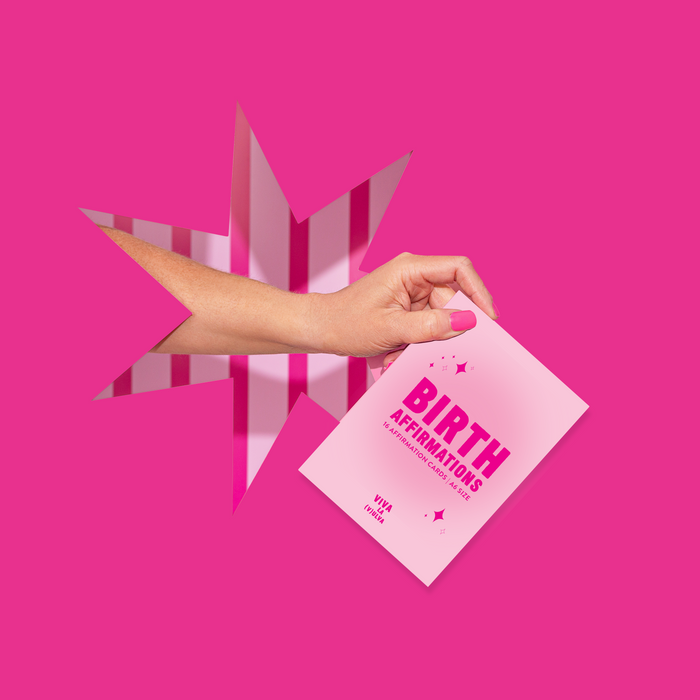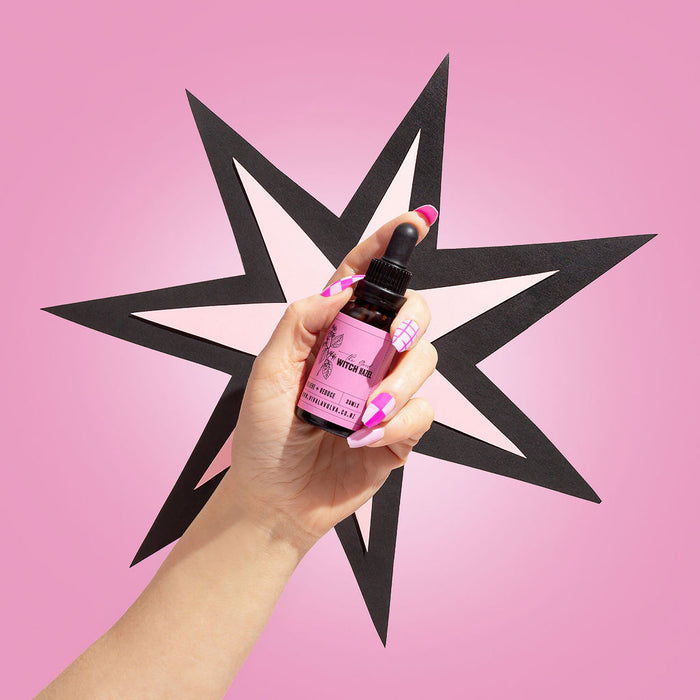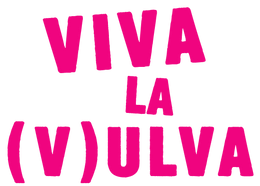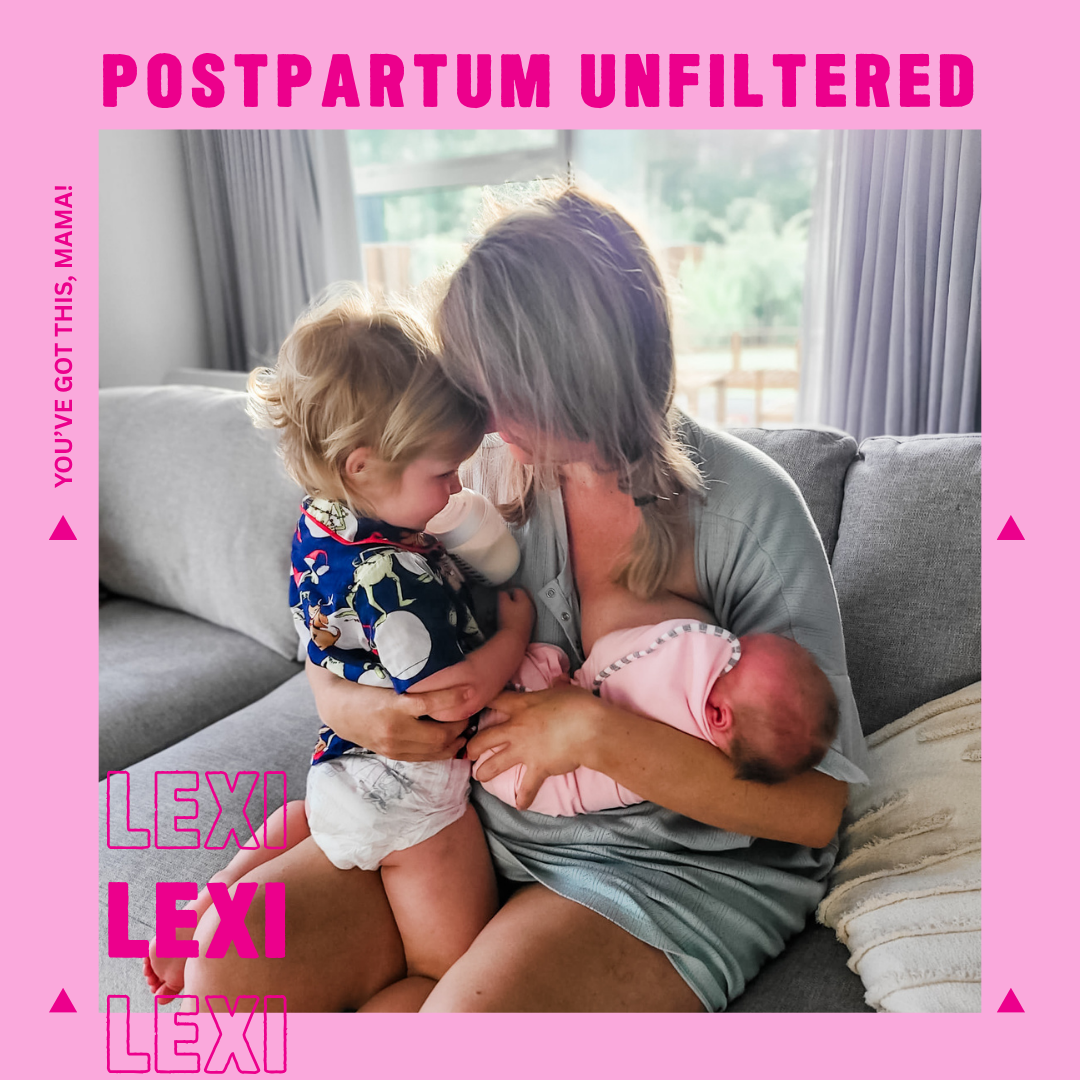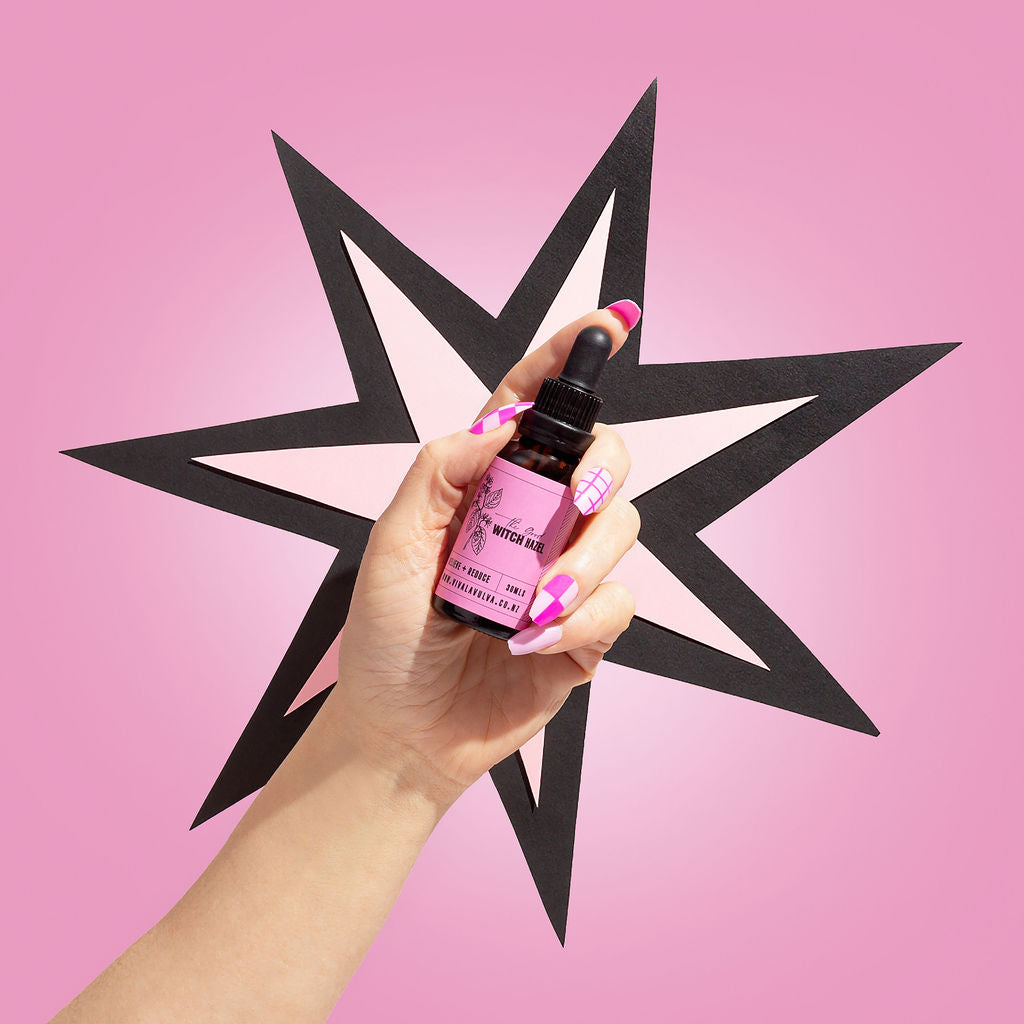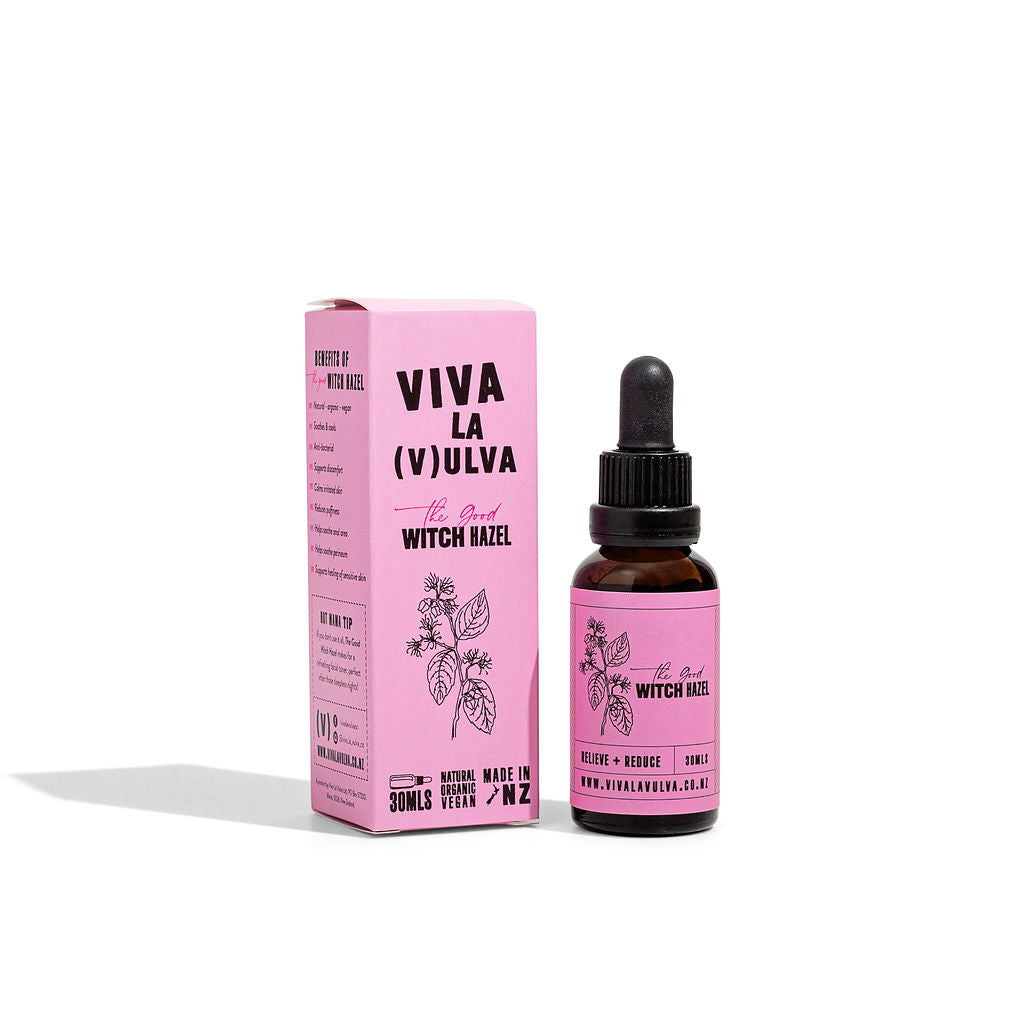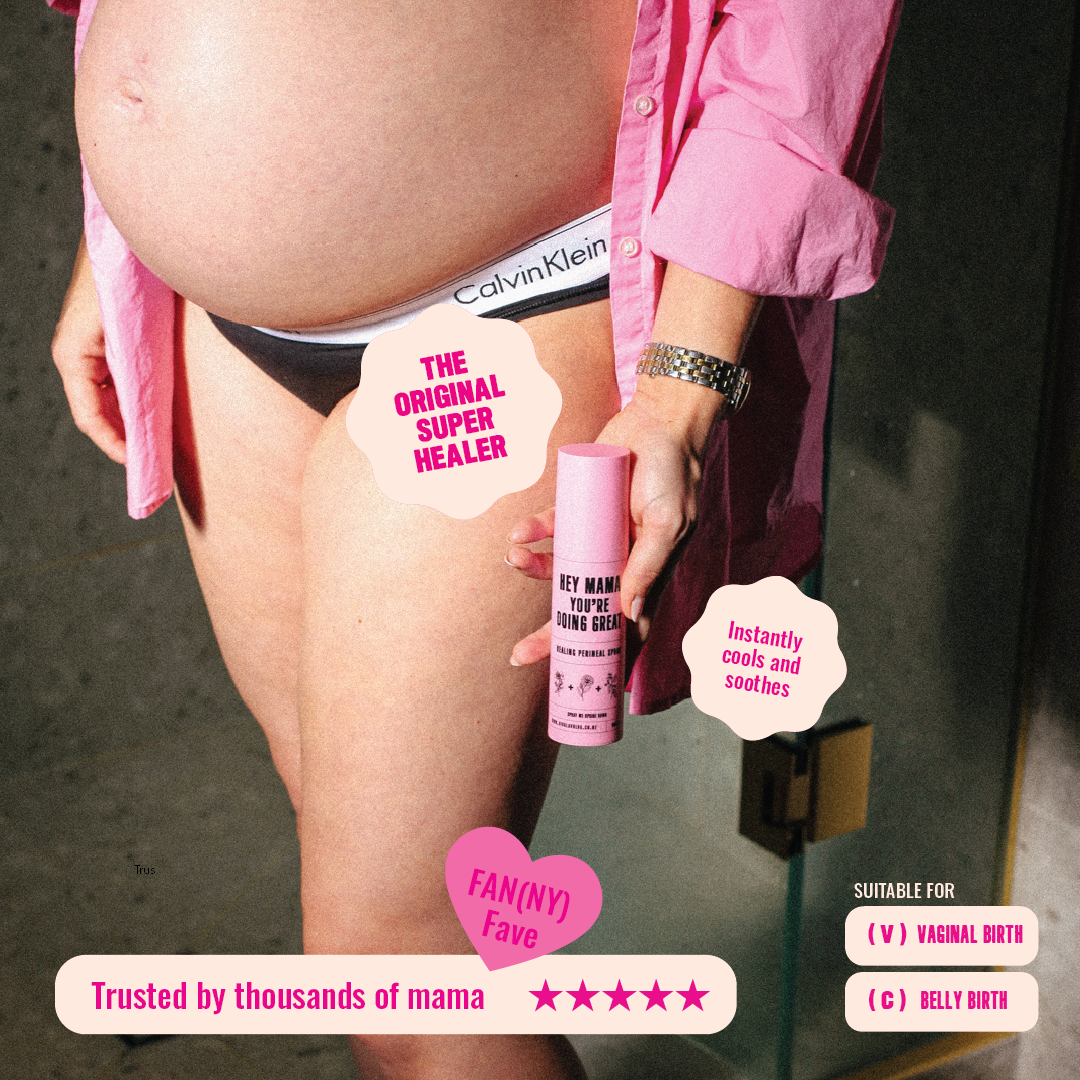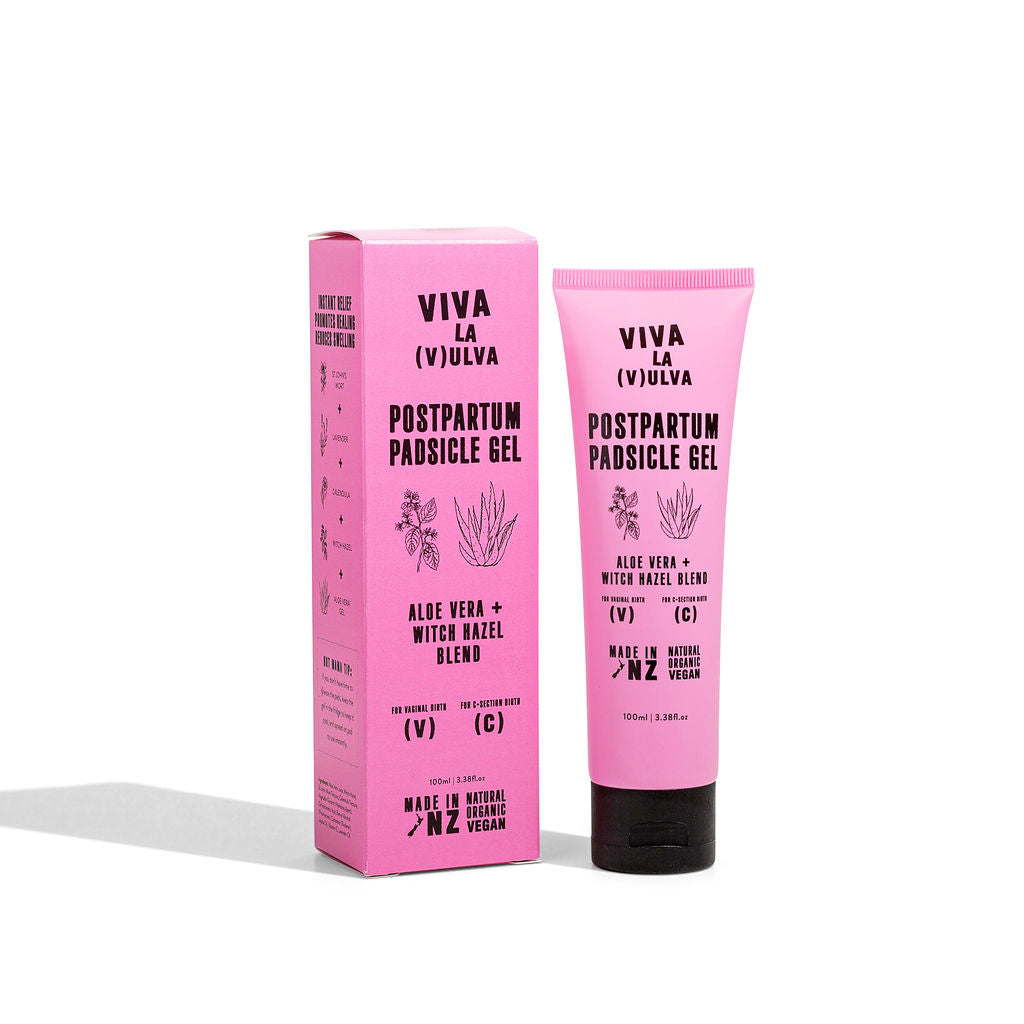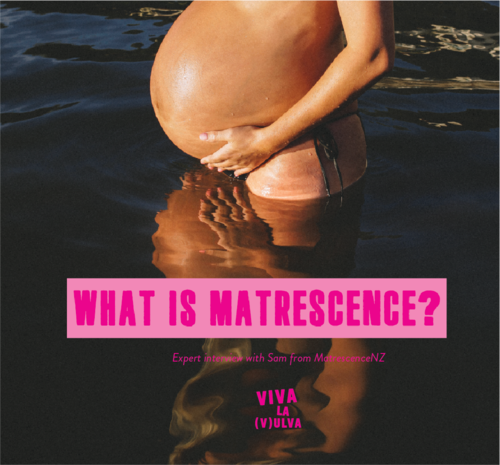
What is Matrescence? Expert Interview With Sam From MATRESCENCENZ
HEY MAMA!
Have you come across the word Matrescence yet? This magical word - Matrescence - has been popping up everywhere recently and we wanted to know more about what it actually meant. We wondered if understanding this could somehow help us to reframe the transition to motherhood and help us to prepare for it a little differently!
We reached out to Sam and Christina who run a business called MatrescenceNZ - these incredible women deliver maternal mental health and antenatal workshops that are focused on the emotional and psychological challenges of motherhood. They help us to understand more about what Matrescence means with regards to our individual journey’s to motherhood and they share lots of useful tools and strategies to help us mamas navigate what can be a very overwhelming time, because ALL mamas deserve MORE support and recognition! Here’s what they shared with us…
VLV: What is Matrescence for those that haven’t yet heard about it? Where did this term originate from?
SAM: No matter how many times I explain what matrescence means, I always feel like I need to take a big deep breath and pause before hand because there is just so much to explain – we offer a 2 hour workshop just introducing matrescence – but a quick summary…
“Matrescence is a developmental passage where a woman transitions through pre-conception, pregnancy and birth, surrogacy or adoption, to the postnatal period and beyond. The exact length of matrescence is individual, recurs with each child, and may arguably last a lifetime! The scope of the changes encompass multiple domains --bio-psycho-social-political-spiritual-- and can be likened to the developmental push of adolescence.” - Aurélie Athan, Ph.D.
I love this definition for these three reasons…
1. It recognises that giving birth is not the marker of motherhood
It is so imperative to recognise and validate those that conceive but for a number or reasons don't give birth, OR those that don’t conceive or don’t give birth but then still become parents.
The matrescence and motherhood journey is more complex than just starting from day one when baby is born.
2. Matrescence is experienced individually - no one size fits all.
The motions of matrescence can begin in childhood when we learn what we think it means to be a mother, when we mother our siblings or pets or when we start planning or thinking about having children, and we’re still experiencing matrescence even as we become a Grandmother! Matrescence is not a fixed period in time, (compared to adolescence) the changes are ongoing as you move through each phase or season of motherhood.
3. Is felt in all aspects of our lives, whether we are aware of it or not.
This is what makes matrescence so life changing - because it impacts every aspect of your life; bio-psycho-social-political-spiritual- and we’re not usually aware that all these changes are going to take place (nor does our society support us through this overwhelming amount of change!).
And a bit of history…
In the 1970’s Dana Raphel (American medical anthropologist) coined the term matrescence (and doula!). There was little to no recognition or understanding of matrescence until Dr. Aurelie Athan (Reproductive Psychologist) rediscovered the term in 2008 through reading Dana Raphel’s research. Aurelie then completed her own research, clinical studies and created the first ever tertiary department centered around mothers’ maternal mental health – amazing!
Fast forward to 2018 where Dr Alexandra Sacks (a psychiatrist from New York) presented a TedTalk which really brought matrescence into the limelight (if you haven’t watched, it’s 6mins long and so good!). She has released many articles on matrescence, and has a fabulous book on preparing for motherhood.
Since then there has been a huge increase in books, podcasts, articles, social media pages etc. about the transition to motherhood and the many challenges that we as mothers face. This increase in awareness is so incredibly powerful for validating how mothers are feeling, and normalising their experiences.
VLV: Why do you do this super important work for women?
SAM: Traditional antenatal workshops and postnatal care currently focus predominantly on the birth and caring of newborns. We felt there was a need for antenatal workshops that focus on mums’ well-being and the challenges of the postpartum period. The transition to motherhood can be extremely overwhelming when faced with a large range of changes, all at once, while sleep deprived, while emotionally and physically depleted and learning to care for a newborn. Our mothers deserve to have more support and recognition of such a challenging time.
But in a nutshell, 2 core reasons…
1. Mums Mental Health
Maternal suicide is the leading cause of maternal death and postnatal depression affects approximately 15-20% of Mums after birth. However, perinatal distress and feeling low, challenged, anxious, guilty, frustrated, and sad are common feelings for ALL mums. We discuss ways to manage these feelings and acknowledge their validity with empathy.
2. Shared Information and Education
We believe that information and education should be available to all. Therefore, we are passionate about spreading the word Matrescense to normalise, validate and raise awareness of the challenges of motherhood. Through education we want to change the way society view and value mothers, their roles in our communities, the penalty of motherhood and the psychological and emotional challenges mothers face. There is also some simple things we can do as a society to support mothers, as well as what mothers can do for themselves, to build emotional resilience for the postpartum period. Once example is enhancing a mothers' support network before baby comes.
VLV: Becoming a mother is a huge physical and emotional, mental shift, how does knowing about Matrescence help you navigate this journey as a new mama? Why should we all know about it?
SAM: “Awareness is the greatest agent for change” - Eckhart Tolle
Within our antenatal classes we have women and their partners attend.
One of our goals is to raise awareness of the challenges of matrescence - so we actually take the time to go through a whole list of changes that happen for mothers.
Reason being, having this awareness, this knowledge, gives new parents an opportunity to prepare for the hurdles ahead – be this preparing practically or emotionally.
The other side of spreading awareness of matrescence is to normalise the challenges that mothers face. So, by knowing that what they’re experiencing is normal, that they’re not alone, that there isn’t something wrong with them - helps validate how they’re feeling. Otherwise we tend to internalise our struggles, and put a lot of blame on ourselves when motherhood does not go to plan – and motherhood never goes to plan!
One example is that we talk about expectations.
And being aware that it is normal that your preconceived expectations of how life with a newborn will go… will mostly not be the case.
It is okay if you had expectations of doing yoga with your baby every morning and you’re 4 months in and haven’t done yoga once.
It is okay that you expected to want to stay home for the first year but actually after 6 months you really want to go back to work - we want to normalise that reality will be really different from expectations - and not to feel defeated by this.
Another example is gaining an awareness of the possible relationship challenges.
Knowing that it is normal for a newborn to put a real strain on your relationship - and so therefore being able to plan and prepare for relationship challenges is so important, and then also validating that it isn’t just you and your partner struggling, this is normal!
I should mention that obviously within our classes we don’t just share a big list of changes and challenges that women will experience throughout their matrescence journey - we offer a range of strategies to help manage them.
So we pick out more common challenging themes and we pair them with a range of key strategies e.g. we introduce our free Postpartum Plan and Cognitive Behavioural Theory strategies that our participants can use to best prepare themselves.
VLV: How does understanding matrescence help you navigate your motherhood/postpartum journey?
SAM: Very much as above.
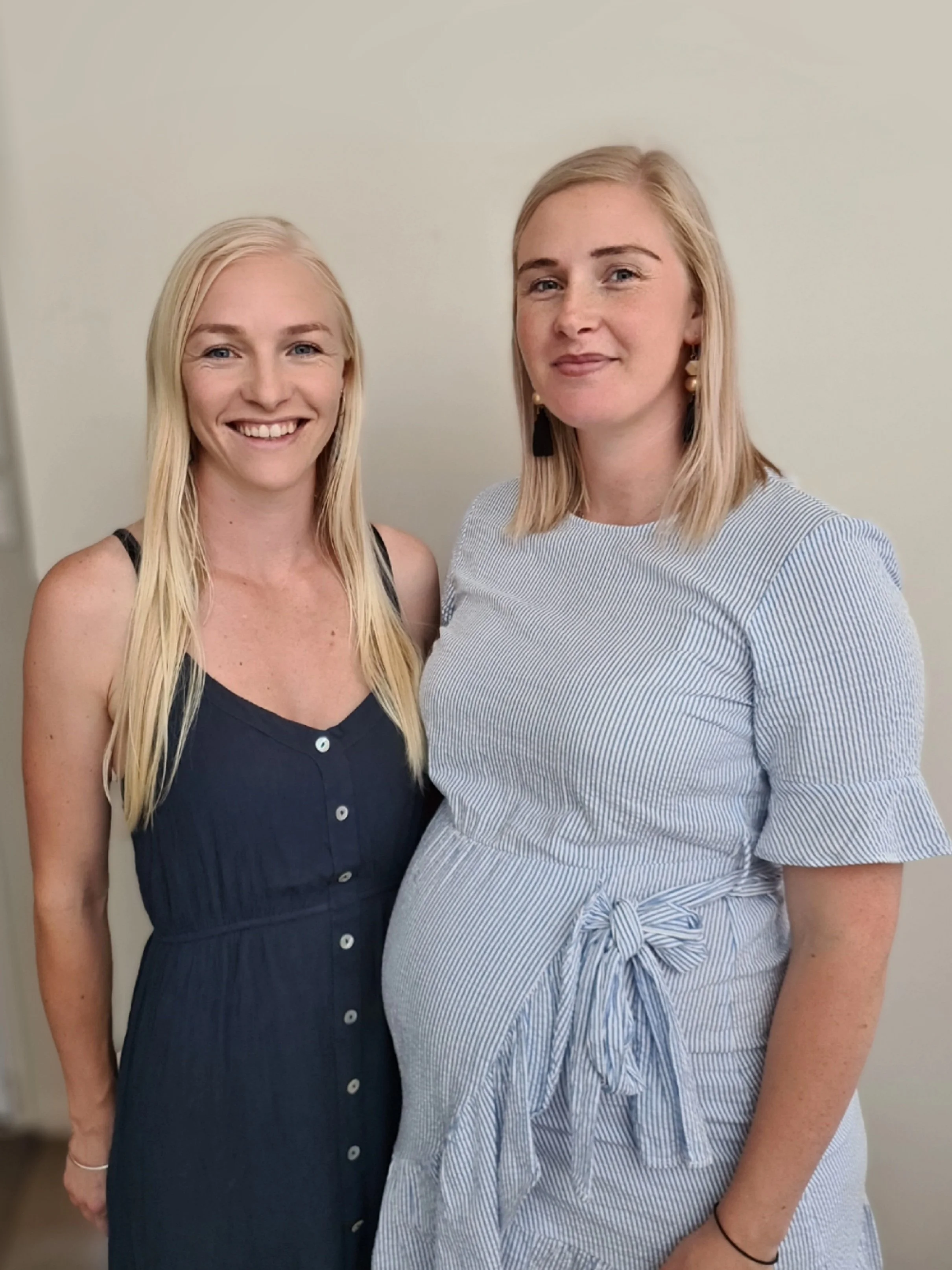
Despite our workshops being focused on challenges of matrescence, the journey of motherhood provides a unique opportunity for growth, insight and transformation. As stated, through an understanding of matrescence this helps to normalise challenging thoughts/situations and validates confusing emotions. An understanding of matrescence helps mothers to embrace motherhood and all the many ups and downs, resulting in less resistance to the changes that are taking place, less fighting against what they can’t control and more acceptance of this journey as a opportunity for a realignment of values and purpose.
VLV: What’s your view on postpartum care in NZ?
SAM: When we look at they way other cultures care for their mothers postpartum – we just don’t compare e.g.
In China new mothers are confined to their own home for a month after giving birth to their baby. During this time they follow specific guidelines on diet, exercise and other activities.
Typically Indian mothers spend 40-60 days resting after they have their babies. They’ll eat foods that are gentle on their digestion, take herbal baths and have a daily massage with herbal oil – (sign me up!).
In traditional Samoan families the new mother will usually return to their mother’s home after giving birth where female family members will help with looking after the mother and newborn baby.
And the postpartum period for Japanese mother’s is devoted to rest and quiet. Traditionally, the mother would be in this healing and nurturing period for 100 days, although now it is usually around 30 days.
A lot of things in common with these examples - rest, recovery and nurturing mums within the postpartum period - whereas in western culture our success as a mother is measured by how quickly we can ‘regain’ our old life back and ‘bounce back’.
There is definitely a shift coming in the recognition and value of supporting mothers during their postpartum period in NZ. But there is just a limited understanding of the biological reasons why mothers need to rest and recover, paired with reduced support networks, mums still being the primary carer of other children while having a newborn and having to return back to work sooner than generally ideal.
VLV: Thanks so much for sharing your perspective and insight! Any other words of wisdom or encouragement you’d like to share with all the mamas, mamas to be?
SAM: The key messages that we share for our mums that is focused on the postpartum period are;
-
It is hard! But each phase changes quickly.
-
There is support if you reach out.
-
There is no one right way, learn together.
-
Care for yourself so you can care for your baby
-
Changing the way you think will change the way you feel.
Want to learn more about MatrescenceNZ and what workshops they provide?
You can email them here with any questions you may have – info@matrescence.nz or visit their website: matrescence.nz
Thank you so much for sharing this valuable information with us Sam! We appreciate the work you are doing for many mamas! x
